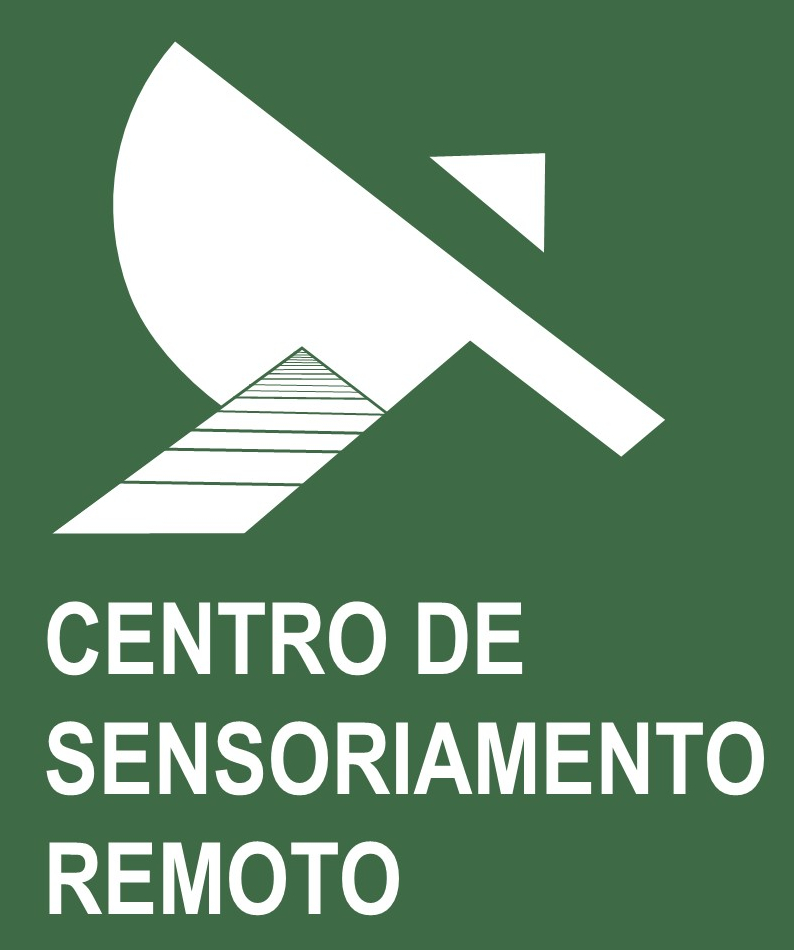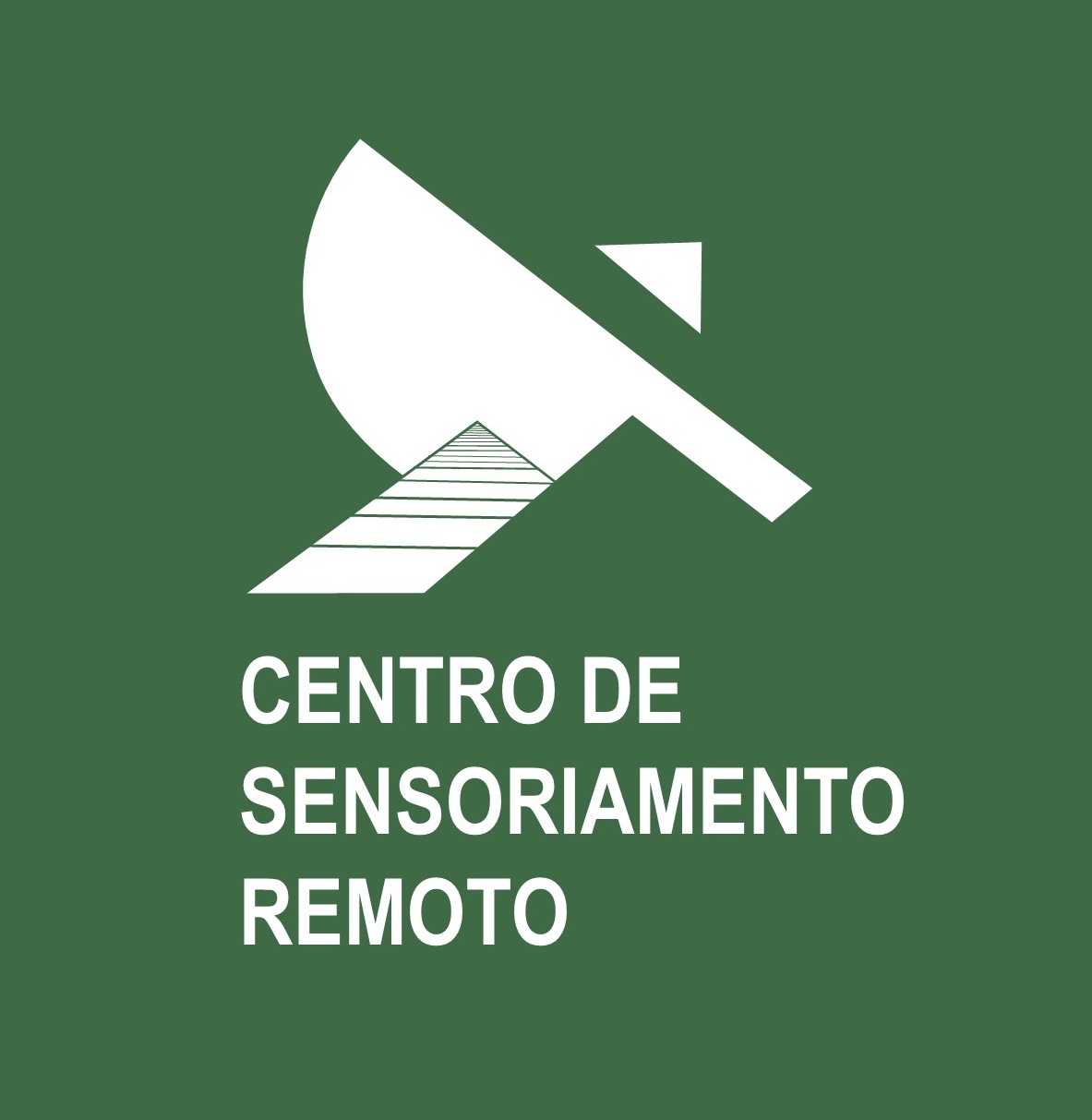General Regulation
Art. 1 – The CENTRE FOR REMOTE SENSING, hereinafter referred to as the acronym CSR, constitutes a laboratory for research, teaching and extension under the auspices of the Department of Cartography of the Institute of Geosciences of the Federal University of Minas Gerais.
Art. 2 – The CSR will be ruled by this regulation, in accordance with the Statutes and General Regulations of this University.
INSTITUTION AND ITS PURPOSES
Art. 3 – The objectives of the CSR-IGC are:
Develop research and applications of Environmental Modeling, Remote Sensing, Cartography and Geoprocessing in studies on environmental resources, territorial planning; public policies and other related areas;
Develop and improve techniques and technologies in Environmental Modeling, Remote Sensing, Cartography and Geoprocessing;
Support the diffusion of technologies and applications of Environmental Modeling, Remote Sensing, Cartography and Geoprocessing through participation in undergraduate, postgraduate and university extension courses and in encouraging the development of cooperative, interinstitutional and multidisciplinary projects;
Develop and execute teaching, research and extension projects.
Art. 4 – Access to the CSR is public, whether for an individual or a legal entity, as long as it has its project (work plan) approved by the CSR Board of Directors.
Art. 5 – Three categories of projects developed in whole or in part in the CSR are defined:
Research,
Extension,
Teaching.
§ 1 – Research projects must emphasize their scientific link with the areas of Environmental Modeling, Remote Sensing, Cartography and/or Geoprocessing and their relevance.
§ 2 – Extension projects will be governed by Resolution No. 10/95 of the University Council and Resolution No. 01/96 of the IGC, subject to specific legislation.
§ 3 – The teaching projects aim at the training and qualification of personnel in the areas of Environmental Modeling, Remote Sensing, Cartography and Geoprocessing, and must be presented by educational institutions, units or departments that have in their programs disciplines similar to the areas referred to above. Every teaching project must be assisted by a supervisor or responsible teacher.
§ 4 – Research, teaching or extension projects presented on behalf of the CSR and approved as such by the Board of Directors and Congregation of the Unit, will be considered institutional projects.
§ 5 – Before being submitted to the financing agent, all projects that require totally or partially physical or personal CSR infrastructure must be evaluated by the Board of Directors as to their feasibility.
Art. 6 – All projects submitted to the CSR must fall into at least one of the three categories treated in Art. 5 and must contain the following elements in their structure:
Category (s);
Project’s goal;
Relevance;
Description of activities and methodology employed;
Responsibility for the execution of each activity and institutions involved;
Personnel involved specific advisor and technician to carry out the project at the CSR);
Budget and sources of funds, execution and disbursement schedule;
Forecast of occupancy of equipment, materials and personnel of the CSR necessary for the execution of the project;
Expected results.
Art. 7 – The projects sent to the CSR will be evaluated, approved and prioritized by the Board of Directors according to the CSR’s service capacity.
Sole Paragraph – The CSR may bear all or part of the costs of projects, provided that it has resources available for that, upon approval by the Board of Directors.
Art. 8 – The use of equipment, software, personnel and materials allocated in the CSR for specific projects is a priority of these projects, according to their respective execution schedules.
Sole Paragraph – At the end of a project, the equipment and resources allocated in the CSR will be incorporated into its collection.
Art. 9 – The results of projects carried out in the CSR must mention, in the reports, articles and other publications, which were developed in the CSR or, when applicable, with the support of the latter.
INSTITUTIONAL ORGANIZATION
Art. 10 – The CSR-IGC is constituted:
I – by the Directing Council;
II – by the Coordination;
III – by the Associate Researchers, defined as coordinators of institutional projects of the CSR-IGC and by the collaborating researchers of the teams of these projects.
Art. 11 – The Directing Council is made up of:
I – by the CSR-IGC Coordinator, with a vote of quality beyond the ordinary;
II – by the Vice-Coordinator;
III – by the coordinators of institutional research projects in execution at the CSR;
IV – by a representative chosen by the Assembly of the Cartography Department of the IGC;
V – by representatives of the technical-administrative staff in charge of the Cartography Department of the IGC and students in accordance with the UFMG Statute and Regulations.
Art. 12 – The CSR-IGC Coordinator will be chosen by the Board of Directors.
1º – The Vice-Coordinator will be chosen by the Centre Coordinator, among the professors with research projects in execution at CSR-IGC.
2nd – The Coordinator and the Vice-Coordinator must be coordinators of institutional research projects under execution at CSR-IGC, holders of postgraduate academic titles and with proven experience in the areas of performance of the CSR-IGC.
Art. 13 – The term of office of the Coordinator, the Vice-Coordinator and the representatives on the Board of Directors is two years.
ADMINISTRATION
Art. 14 – The Board of Directors, an advisory and deliberative body, is responsible for:
I – evaluate, approve and prioritize the projects sent to the CSR;
II – to appreciate and approve the annual report presented by the Coordinator;
III – carry out the planning for the development of the CSR;
IV – advise the Coordination;
V – to consider and approve the proposals for admission or dismissal of technical-administrative personnel hired by the projects;
VI – publicize the work and activities carried out by the CSR at national and international levels, aiming to guarantee the smooth functioning, continuity and expansion of the CSR’s activities;
Art. 15 – The Coordinator is responsible for:
I – choose the Vice-Coordinator from among the researchers associated with the CSR;
II – execute the deliberations of the Board of Directors;
III – manage the operation of the CSR;
IV – watch over CSR assets;
V – prepare the CSR’s annual activity report;
VI – comply with and enforce the CSR charter;
VII – call and preside over the meetings of the Board of Directors;
Art. 16 – The Vice-Coordinator is responsible for advising the Coordinator and replacing him in his absences or impediments.
Art. 17 – The Project Coordinators are responsible for:
I – exercise the coordination of the activities that compose the project;
II – submit the project changes to the Board of Directors;
III – present the final report of the projects to the Directing Council.
Art. 18 – Appeals against decisions:
I – From the CSR Coordinator to the Directing Council.
GENERAL PROVISIONS
Art. 19 – The Directing Council will ordinarily meet twice a year, preferably in the months of May and November, or on an extraordinary basis, whenever called by the Coordinator or at the request of an absolute majority of its members.
Art. 20 – The circulars for summoning the Board of Directors, containing the agenda of the meetings will be issued at least 8 days in advance.
Art. 21 – The sessions will be installed, and the deliberations will be taken with the minimum presence of the absolute majority of its members.
Article 22 – The meetings will be documented in minutes, submitted to the approval of the members of the Board of Directors and signed by all those present.
Art. 23 – The cases omitted to the present regulation will be solved by the Congregation of the Unit.
Art. 24 – This Regulation comes into force on the date of its approval by the Congregation of the Institute of Geosciences.

